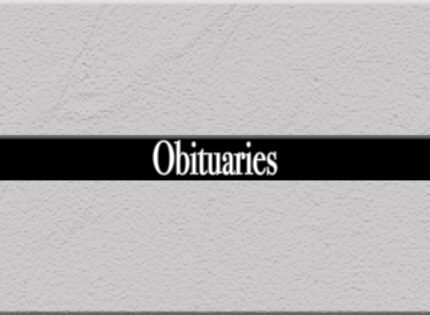Discord among congregation forces United Church Presbytery to install a supervisor and a chairperson
Egbert Gaye
It’s going on 120 years since 26 men and women of faith founded a place of worship, where “respect for person” and the dignity of Black people would flourish.
That place, Union United Church of Montreal, stood for a long time as a symbol of our community’s diversity and resilience.
But these days the foundational pride of ownership and the protection of dignity are threatened by ruptures in the congregation and a floundering leadership that might be at the root of the discord.
It has gotten to the point where the church is under what can be perceived as trusteeship by the Montreal Presbytery of the United Church of Canada, which recently installed “a pastoral charge supervisor” who is supposed to oversee a set of recommendations that came out of a review of “the state” of Union.
It’s a damning set of recommendations that calls for the removal from office of several key and long-standing members of the church that were heads of committees and working groups within the institution.
Among those who have been recommended to be relieved from leadership roles is Erene Anthony, the current chair of the Board of Directors, who has invested decades of work towards the church’s development.
The report stated that she has been “overtaxed and should not be burdened by the work that is now needed.”
It also recommended that church stalwarts such as Wayne Thomas, past chair of the Board, Dr. Alwin Spence, who served as chair of Ministry and Personnel, Ms. Lorane McKenzie, past chair of nominations, Tessa Ann Griffin, George Porter and Marcus Durant be removed from serving on committees.
A significant segment of the congregation spoke to the CONTACT in confidence and say that they rejected the premise of these recommendations, especially because it tip-toed around the issue of leadership at the church as it pertained to the minister, Reverend Emmanuelle Ofori.
Wayne Thomas has been outspoken in his opposition to the review and its recommendations because he says it does not respond to the primary cause of the Presbytery involvement.
“We (members of the Board of Directors) went to them because we were concerned about the direction the church is going,” he told the CONTACT. “It’s now at a point where members of the congregation are not attending service, the numbers of baptisms and funerals that are conducted at the church are now next to nothing.
We went to them because there has been widespread dissatisfaction with the minister. They decided to do a congregational review also, and in the end they came back with only recommendations about the congregation and nothing on the review of the minister.”
The one mention of Reverend Ofori in the 16 recommendations about the state of the church is that he “does not resume the role of the Chair of Trustees while he serves as ministry of personnel at Union United.
But Thomas and others who say they are dissatisfied with the service of Reverend Ofori say the presbytery should make public the findings of ministerial review, as it will allow for an easier path to the future for the congregation.
Mark Grenon, chair of the Quebec Presbytery told the Contact because so much of the situation surrounding Union United remain unresolved, he just cannot comment on it at this time.
For his part, Reverend Ofori is quite comfortable with the situation as it is today saying that it is the doings of those who chose to take internal church matters and “place them into the hands of Presbytery, which gave them the rights to exercise their authority over the church.”
He says he cannot understand how those who are behind the current impasse want the findings of his review to be made public when they signed an agreement with the Presbytery that it be kept confidential.
“By going to Presbytery for the ministerial review, they invoked the authority of the Manual of The United Church of Canada and it’s under that same Manual and the labor laws of Canada that an employee review must be confidential.
“They all agreed and signed that agreement of confidentiality.”
He says the onus now is on the congregation to come to terms with the fact that “we need reconciliation.”
“The way forward, he says, is for us to come to terms with the fact that we shouldn’t let our diversity divide us because diversity is our richness.”
However, Thomas points to what he described as a disconnection between the minister and a large chunk of the congregation as the clog in the wheel that will prevent any forward movement.
He says the sad truth is, inspite of the many challenges the church has faced over the last decade or so, the congregation always found a way to work together and get things done.
“That’s how we were able to get back to Delisle Street after so many years in NDG. Whenever the minister was not involved, there was harmony. We worked together to raise the money and everything else necessary, although there were disagreements.”
As the situation currently stands, it seems as if harmony among the congregation in the near future has to be imposed.
The Presbytery-installed supervisor (a full-time, paid position) will be in place for at least twelve months and they have appointed “a skilled person with particular gifts for chairing difficult meetings to chair meetings of the Official Board,” for the same period.
All to make sure that the officers and members of the congregation of Union United Church behave themselves.















